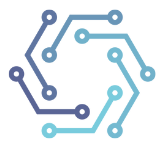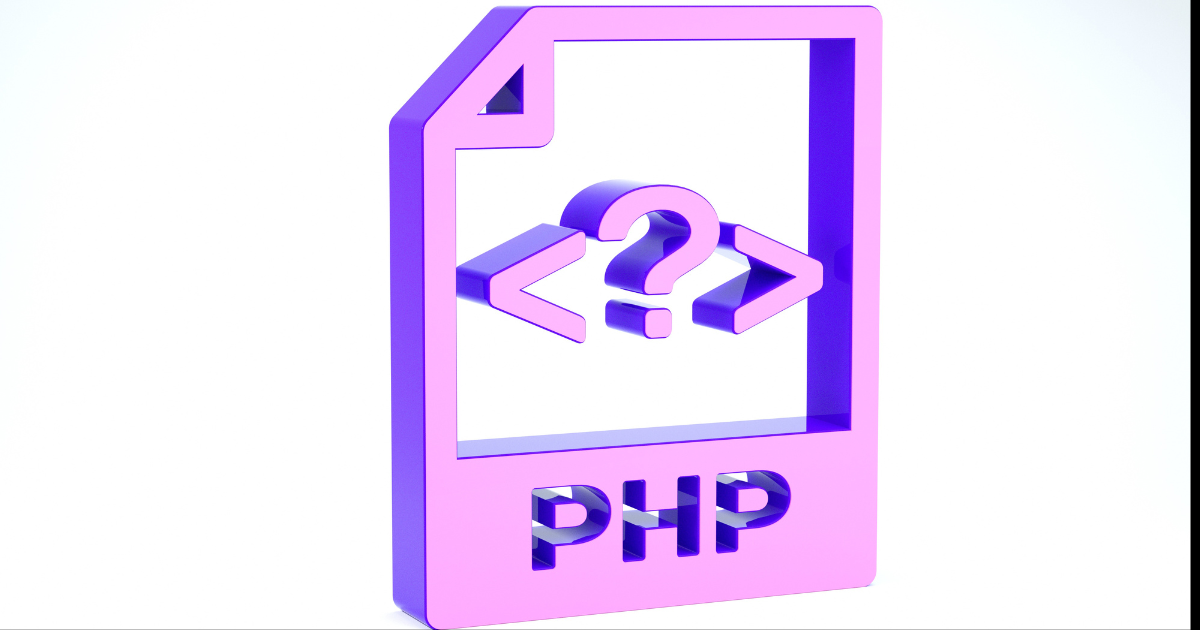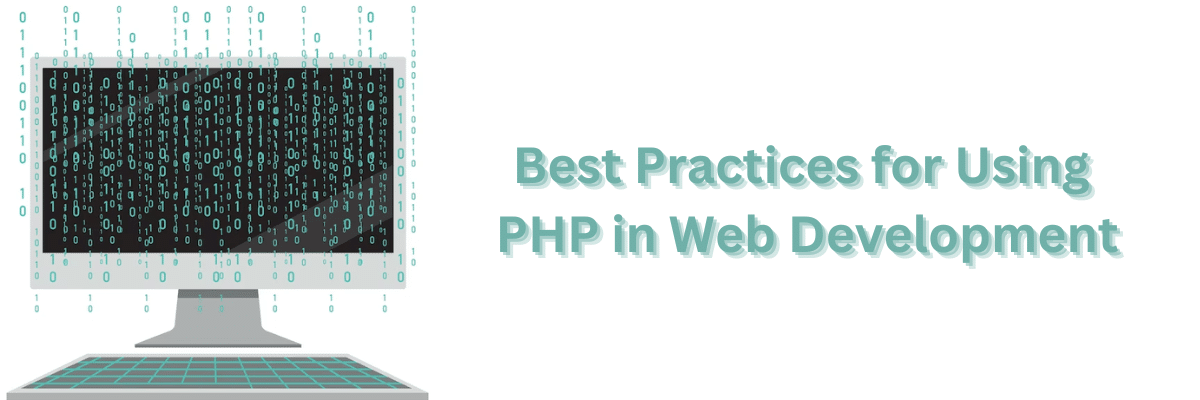Exploring the Pros and Cons of PHP Development: An In-Depth Analysis
Are you considering PHP for your next web development project? You’re not alone! PHP is one of the most widely used server-side programming languages, powering over 79% of websites on the internet today. But with great popularity comes great scrutiny, and it’s important to understand both the pros and cons of PHP development before jumping in.
On one hand, PHP offers scalability, ease of use, and cost-effectiveness over modern languages, making it an attractive choice for businesses and developers alike. And on the other, PHP development also comes with its own set of challenges, such as performance issues, security concerns, and limitations in certain areas.
In this in-depth analysis, we will explore the pros and cons of PHP development to help you make an informed decision about the software developer and whether or not to use it for your web development projects.
By the end of this post, you will have a comprehensive understanding of the main pros and cons of PHP development and be able to decide whether it’s the right choice for your next project.
Table of Contents
- What is PHP Development?
- Pros of PHP Development
- Cons of PHP Development
- Potential Performance Issues Associated with Using PHP
- Comparison with Other Web Development Languages
- When Is It Most Suitable to Use PHP for Web Development Projects?
- Best Practices for Using PHP in Web Development
- Wrapping Up
- Frequently Asked Questions
What is PHP Development?
PHP development refers to the process of using the PHP programming language to develop web applications, websites, and other digital products. PHP language stands for Hypertext Preprocessor and was initially created in 1994 by Rasmus Lerdorf as a tool for managing his personal website.
Today, PHP is one of the most popular server-side scripting languages, used by developers worldwide to build robust and dynamic websites and web applications. PHP is an open-source language, meaning that its source code is freely available and can be modified by anyone. This makes it a flexible and accessible language for developers to work with.
PHP is designed to be embedded in HTML code and is executed on the server side, meaning that the server processes the PHP code and sends the resulting HTML to the user’s web browser. This makes it an ideal choice for creating dynamic web pages, processing user input, and interacting with databases.
PHP development can be used to build a wide variety of web-based applications, including e-commerce platforms, content management systems, social networks, and many others. Its ease of use and flexibility have made it a go-to choice for businesses of all sizes, from startups to large corporations.
Pros of PHP Development
PHP is one of the most widely used server-side scripting languages, powering over 79% of websites on the internet today. It offers several advantages that make it a popular choice among developers worldwide.
Let’s explore the top pros of PHP development.
1. Scalability
Scalability is a crucial factor in web development, and PHP offers excellent scalability options. It can handle large and complex projects with ease, making it an ideal choice for large-scale applications. PHP also supports multiple servers and load balancing, allowing you to scale your application as your traffic grows.
2. Ease of Use
One of the biggest advantages of PHP is its ease of use. Its syntax is simple and easy to learn, making it accessible even for beginners. PHP also offers a vast array of libraries and frameworks that simplify the development process further. This means that developers can create robust and dynamic web applications with minimal effort.
3. Cost-effectiveness
PHP is an open-source language, which means that it’s freely available for anyone to use and modify. This makes it a cost-effective choice for businesses and developers who want to create web applications without investing heavily in licensing fees. Additionally, many popular PHP frameworks, such as Laravel and Symfony, are also open-source, further reducing development costs.
4. Large Community and Support
PHP has a vast and active community of developers and users who regularly contribute to its development and provide support to others. This means that developers can easily find resources, tools, and solutions to their problems. Additionally, PHP has an extensive documentation library, making it easy for developers to learn and troubleshoot issues.
5. Cross-platform Compatibility
PHP is compatible with all major operating systems, including Windows, macOS, Linux, and Unix. This makes it easy for developers to develop and deploy their applications on multiple platforms without worrying about compatibility issues.
6. Fast Development Cycle
PHP has a fast development cycle, which means that developers can create and launch applications quickly. This is because PHP code is interpreted, rather than compiled, which makes the development process faster. Additionally, PHP has a vast library of pre-built code and plugins that developers can use to speed up development further.
7. Flexibility
PHP is a flexible language that can be used to develop a wide range of applications, from small-scale websites to large enterprise-level systems. Its flexibility allows developers to choose from a variety of frameworks and tools, making it easy to customize thhttps://www.mysql.com/eir development process to meet their specific needs.
8. Support for Multiple Databases
PHP supports a wide range of databases, including MySQL, PostgreSQL, Oracle, and Microsoft SQL Server. This makes it easy for developers to work with different database systems and switch between them if necessary.
9. Security
PHP has several built-in security features, such as input validation and protection against cross-site scripting (XSS) and SQL injection attacks. Additionally, many popular PHP frameworks, such as Symfony and Laravel, have additional security features built-in, making it easy for developers to create secure applications.
10. Compatibility with Other Web Technologies
PHP is compatible with other web technologies, such as HTML, CSS, and JavaScript. This makes it easy for developers to integrate PHP with other web technologies and create dynamic and interactive web applications.
Cons of PHP Development
While PHP is a popular server-side scripting language with many benefits, there are also some potential drawbacks and limitations that developers should be aware of.
Let’s explore some of the cons of PHP development.
1. Performance
While PHP is a fast language, it may not be the best choice for high-performance applications. In some cases, a PHP script may not be able to handle a large number of requests and may slow down the performance of the application.
2. Security Vulnerabilities
Although PHP has built-in security features, it still has some vulnerabilities that can leave web applications exposed to attacks. This is especially true for older versions of PHP, which may have security issues that have not been patched.
3. Lack of Type Safety
PHP is a dynamically typed language, which means that variables do not have to be declared with a specific data type. While this can make coding faster and more flexible, it also makes it more prone to errors.
4. Inconsistency
PHP has a large library of functions and APIs, which can sometimes lead to inconsistency in the code. This can make it difficult for developers to maintain and debug their applications.
5. Limited Support for Multithreading
PHP does not have robust support for multithreading, which can make it difficult to develop concurrent applications. This can lead to performance issues and slow down the application.
6. Limited Support for Functional Programming
While PHP does support functional programming, it is not as robust as other languages such as JavaScript or Python. This can limit the development options for some applications.
7. Dependency Management
PHP does not have a built-in package manager, which can make dependency management difficult. This can make it challenging to keep track of libraries and dependencies in large-scale applications.
8. Limited Support for Large-scale Applications
While PHP can handle large-scale applications, it may not be the best choice for very complex or mission-critical applications. This is because PHP may not offer the level of scalability and reliability needed for these types of applications.
9. Steep Learning Curve for Some Frameworks
While PHP frameworks can speed up development, they may have a steep learning curve for some developers. This can make it difficult to adopt new frameworks and technologies.
10. Integration Issues
PHP may have integration issues with some systems and technologies. This can make it challenging to integrate PHP with other systems and applications, leading to compatibility issues.
Potential Performance Issues Associated with Using PHP
PHP is a popular server-side scripting language used for developing dynamic websites and web applications. While PHP is known for its ease of use and flexibility, it can also face potential performance issues that developers should be aware of.
Here are some of the potential performance issues associated with using PHP.
1. Limited Support for Multithreading
PHP does not have strong support for multithreading, which can impact performance when dealing with concurrent requests. While some workarounds exist, they can be difficult to implement and may not be optimal for all use cases.
2. Slow Execution Time
PHP scripts can be slow to execute, especially for complex tasks. This can impact website performance and user experience, particularly when handling large amounts of data or complex operations.
3. Memory Usage
PHP can consume a large amount of memory, especially when dealing with large datasets or complex operations. This can lead to performance issues, particularly in shared hosting environments with limited resources.
4. Database Queries
PHP applications often rely heavily on database queries, which can be a bottleneck for poor performance too. Poorly optimized queries, database connections, and data processing can all impact the performance of PHP applications.
5. Caching Issues
PHP relies on caching to improve performance, but caching can also be a source of performance issues if not implemented correctly. Improper caching can lead to memory bloat, decreased performance, and increased server load.
6. Poorly Optimized Code
Poorly optimized code can also impact the performance of web servers and PHP applications. Code that is inefficient or relies on too many function calls can cause performance issues, particularly for high-traffic websites or applications.
7. Web Server Configuration
PHP performance can also be impacted by web server configuration. Server settings, such as memory limits and execution time limits, can affect the performance of PHP applications.
Comparison with Other Web Development Languages
When it comes to web development, PHP is not the only language that developers can choose from. There are several other programming languages that can be used for web development, each with its own set of strengths and weaknesses.
Let’s compare PHP with some of the other popular web development languages.
Python
Python is a general-purpose programming language that has become popular in recent years for web development. It has a simple syntax and is easy to learn, making it an attractive option for beginners.
Python has a large and active community, which means there are plenty of resources and libraries available for web development.
Compared to PHP, Python is often considered to be more scalable and maintainable, with better support for larger and more complex projects.
Ruby
Ruby is another general-purpose programming language that has gained popularity for web development, particularly with the Ruby on Rails framework. It is known for its readability and expressiveness, which can make it faster to write code than other languages.
Ruby on Rails provides many built-in features and conventions that can simplify web development, making it a popular choice for startups and small businesses.
However, this language may not be the best choice for larger and more complex projects, and it may not be as widely supported as PHP.
JavaScript
JavaScript is a client-side scripting language that can also be used for server-side development with Node.js. This language has become ubiquitous in web development, powering many modern web applications and frameworks.
Compared to PHP, JavaScript offers better support for real-time and event-driven applications, with strong support for asynchronous programming.
However, this programing language can be more difficult to learn and may require additional skills and expertise to use effectively.
When Is It Most Suitable to Use PHP for Web Development Projects?
PHP is a versatile and popular programming language that can be used for a wide range of web development projects. However, there are certain situations where PHP is particularly well-suited and other situations where it may not be the best choice.
Here are some factors to consider when deciding whether to use PHP for your web development project:
1. Budget
PHP is a free and open-source programming language, which means that it can be a cost-effective choice for web development projects with limited budgets. There are many free tools and resources available for PHP development, and the language is widely supported by web hosting providers.
2. Timeframe
PHP is a fast and efficient programming language, which can make it a good choice for many web apps development and web development projects with tight timelines. PHP has a large and active community, which means that developers can easily find help and resources when needed.
3. Project Complexity
PHP is a highly flexible language that can be used for both simple and complex web development projects. However, it may not be the best choice for projects that require a lot of concurrency or real-time processing, as PHP is not as well-suited for these types of applications.
4. Web Hosting
PHP is widely supported by web hosting providers, which can make it a good choice for projects that require flexibility in hosting options. Many web hosting providers offer PHP support out of the box, and there are also many third-party hosting providers that specialize in PHP hosting.
5. Team Experience
PHP is a popular programming language with a large and active community, which means that it can be easy to find skilled developers and resources for PHP development. However, it’s important to consider the experience and skills of your development team when deciding whether to use PHP.
If your team is already experienced with PHP, then it may be a good choice. But, if your team has limited experience with PHP, then it may be more challenging to develop your project effectively.
Best Practices for Using PHP in Web Development
When it comes to using PHP in web development, there are several best practices that can help ensure the success and effectiveness of your project.
Here are some tips for using PHP effectively:
1. Keep your Code Organized and Maintainable
Organizing your code into logical modules and functions can make it easier to read and maintain. Use comments and descriptive variable names to make your code more understandable for other developers.
3. Use Frameworks and Libraries
There are many PHP frameworks and libraries available that can help speed up development and improve the overall quality of your code. Popular PHP frameworks include Laravel, Symfony, and CodeIgniter.
3. Secure Your Code
Security should always be a top priority in web development. Use best practices for handling user input, such as validating and sanitizing all data before using it in your code. Use encryption and secure authentication methods to protect sensitive data.
4. Optimize Your Code for Performance
PHP can be a fast and efficient language, but it’s important to optimize your code for performance. Use caching and compression techniques to speed up page load times and minimize server load.
5. Test Your Code Thoroughly
Thoroughly testing your code is essential for ensuring its quality and reliability. Use automated testing tools and techniques to catch bugs and errors early in the development process.
6. Stay Up-to-date with the Latest PHP Updates
PHP is an actively developed language, with new updates and features released regularly. Staying up to date with the latest updates can help ensure that your code is secure and compatible with the latest web technologies.
Wrapping Up
In conclusion, there is a fair share of pros and cons of PHP development. While it is a popular and widely used language with a large community of developers and a wide range of libraries and frameworks, it also has some potential performance issues and security vulnerabilities.
As with any technology, it’s important to carefully evaluate the needs of your project and choose the tools and languages that are best suited to achieve your project requirements and goals. By understanding the pros and cons of PHP development, you can make an informed decision about whether it’s the right choice for your next web development project.
Thank you for reading this in-depth analysis of the pros and cons of PHP development. We hope this article has provided valuable insights into the world of PHP and its use in web development. Do read our next blog on ‘How to Choose the Right JavaScript Development Company for Your Project.
Frequently Asked Questions
What is PHP?
PHP is a popular server-side scripting language used for web development.
What is the latest version of PHP?
The latest stable version of PHP as of April 2023 is PHP 8.0.11.
Is PHP a programming language?
Yes, PHP is a programming language designed specifically for web development.
Is PHP easy to learn?
PHP is considered to be a simple language to learn, especially for those with prior programming experience.
What is a PHP developer do?
A senior PHP developer who is responsible for designing, developing, and maintaining web applications using the PHP programming language. This includes writing code, testing and debugging applications, and collaborating with other developers and stakeholders to further product features and ensure that the application meets the desired requirements and specifications.
Is PHP good for software development?
PHP is primarily designed for web development, but it can also be used for software development. However, other languages such as Java, Python, or C++ may be more suitable for software development due to their broader range of features and capabilities. It ultimately depends on the specific needs and requirements of the project.
What are the disadvantages of PHP?
PHP can be less secure if coding is not done properly. It can also have potential performance issues and lacks some advanced features of other languages.
What are the advantages of learning PHP?
Learning PHP can open up a wide range of opportunities in the web development world, as it is a widely used language with a large community of developers and a range of job opportunities available. It is also relatively easy to learn, especially for those with prior programming experience.
What are some popular PHP frameworks?
Popular PHP frameworks include Laravel, Symfony, and CodeIgniter.
Is PHP open-source?
Yes, PHP is an open-source language, meaning that the source code is freely available and can be modified and distributed by anyone.
What types of applications can be built with PHP?
PHP can be used to build a wide and diverse range of web applications, from simple websites to complex e-commerce platforms and social networks.
Can PHP be used for mobile app development?
While PHP is primarily used for web development, it can also be used to build the back-end of mobile and desktop applications through the use of APIs and web services.
Is PHP secure?
PHP itself is generally considered to be secure, but as with any web application, security issues can arise due to poor coding practices or vulnerabilities in third-party libraries or frameworks.
Is PHP still relevant in 2023?
Yes, PHP is still a widely used and relevant language for web development in 2023, with a large community of developers and a wide range of libraries and frameworks available.















